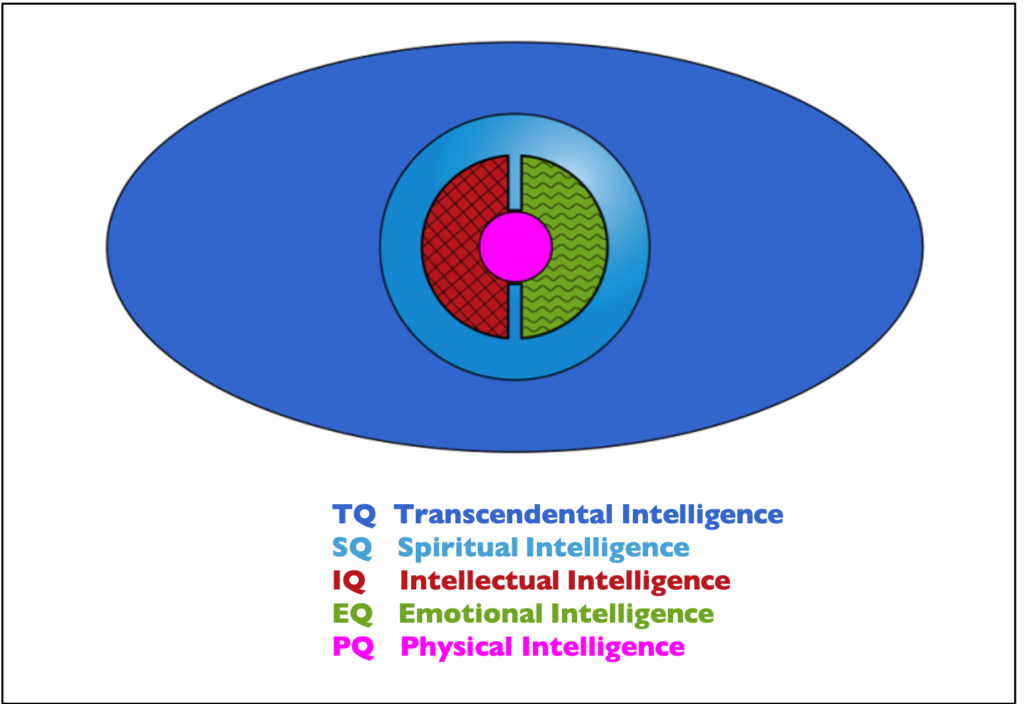
Full Spectrum of Intelligence
Dimensions of Intelligence
The full spectrum of intelligence is made up of five dimensions, from PQ to TQ, via EQ, IQ, and SQ. Physical intelligence is a property of all life-forms. PQ controls our breathing and regulates the autonomic nervous system. The coordination required to walk or put on a jacket is a PQ capability. After PQ comes IQ and EQ, which are about intellect and emotion, followed by SQ, which is about meaning and purpose.
Spiritual Intelligence
As a higher dimension of intelligence, SQ replaces the ego with the soul, both as the seat of personal identity and as the governor of PQ, IQ, and EQ [1]. The qualities of spiritual intelligence are experienced at the subject-pole of attention [2] in moments of presence, in the form of wisdom, compassion, integrity, joy, love, creativity, and peace. SQ therefore increases personal fulfilment and social responsibility, boosts individual and group performance, and results in cooperation, tolerance, and peace [3, 4, 5].
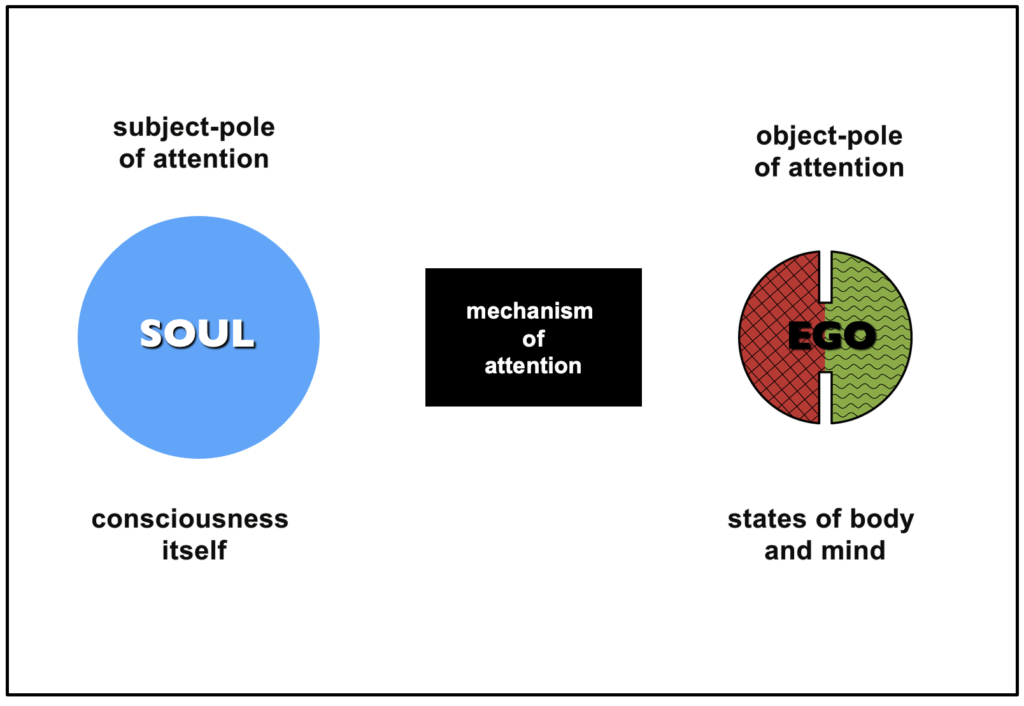
Twin Poles of Attention
Transcendental Intelligence
Beyond spiritual intelligence (SQ) is the ultimate dimension of intelligence, called transcendental intelligence (TQ). Whereas SQ shifts from the ego to the soul by transcending the object-pole of attention [6], TQ shifts from the dualistic consciousness of the individual soul to the non-dual consciousness of the universal soul [7], by transcending both poles of attention and the mechanism of attention altogether. TQ represents the intelligence of non-individuated consciousness itself, which is the self-existing and self-radiant ground of all being, and the transcendental source of all [8, 9, 10].
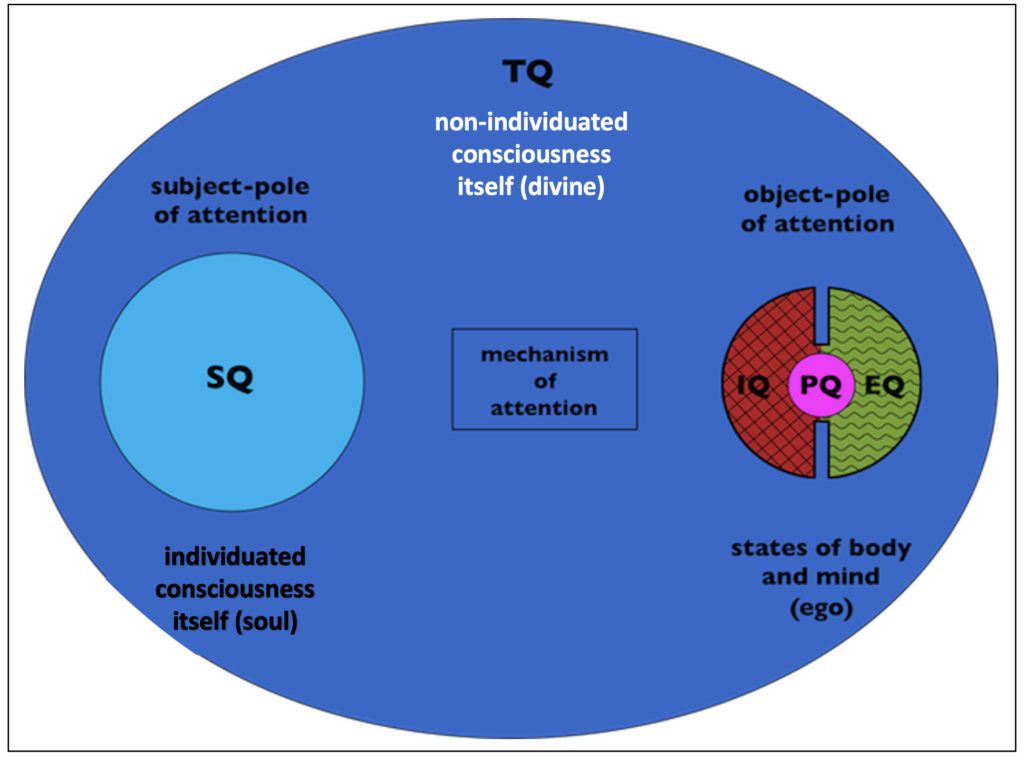
Not surprisingly, full TQ realisation is extremely uncommon. There are very few reports of stable and permanent TQ realisation on record. Limited and temporary TQ experiences occur more often, as evident from studies in transpersonal psychology, and from art and literature, and from the histories of spiritual traditions. However, even temporary TQ experiences, with rare exceptions, result from many years of preparation.
The Religious Idea of a Creator God
 The ultimate dimension of intelligence beyond SQ (spiritual intelligence) is TQ (transcendental intelligence). TQ is the intelligence of transcendental consciousness (non-individuated self-existing self-radiant consciousness). However, if you merely believe in the existence of a transcendental dimension of reality, as an article of faith, without actually experiencing transcendental consciousness as your own inherently non-separate source, then transcendental reality is objectified as something separate from yourself. This gives rise to the idea of a separate God. The objectifying effect of religious belief thus misrepresents the transcendental dimension of reality in the form of a separate deity.
The ultimate dimension of intelligence beyond SQ (spiritual intelligence) is TQ (transcendental intelligence). TQ is the intelligence of transcendental consciousness (non-individuated self-existing self-radiant consciousness). However, if you merely believe in the existence of a transcendental dimension of reality, as an article of faith, without actually experiencing transcendental consciousness as your own inherently non-separate source, then transcendental reality is objectified as something separate from yourself. This gives rise to the idea of a separate God. The objectifying effect of religious belief thus misrepresents the transcendental dimension of reality in the form of a separate deity.
According to religious belief, human beings are “made in the image of God.” But according to transcendental intelligence, it’s the other way around. From the non-dual TQ point of view, the religious idea of a separate God is made in the image of the human ego, as a counterpart to the apparently separate self. Accordingly, transcendental intelligence realises the divine not as the separate creator of separate beings, but as the ground of all being, the non-separate self-condition and source-condition of all apparently separate beings. TQ therefore does not require the religious idea of a separate creator God, because transcendental intelligence recognises the appearance of the universe as a stepped-down modification of self-existing transcendental consciousness itself [11, 12, 13].
Atheism
In addition to rejecting belief in the existence of a God, atheists usually subscribe to materialism, which is the belief that reality is fundamentally physical or material. Materialism and theism are widely regarded as the only possible alternatives. Consequently, atheists simply assume that materialism must be the truth, based on their rejection of theism. Thus it is assumed that if theism is false, then materialism must be true. But this is not so. The SQ paradigm represents a third alternative, in the form of secular spirituality, which supersedes both theism and materialism, as explained below.
Materialism
 The philosophy of materialism goes back a long way. As an explicit belief system about the ultimate nature of reality, materialism dates back to ancient Greece, and even earlier. However, in the civilisations of the ancient world, materialism was a minority point of view, on the fringe of the prevailing mainstream religious culture. But after the scientific revolution in 17th century Europe, materialism for the first time gained mainstream cultural support. With the official endorsement of orthodox science, the materialist point of view is now established as the dominant paradigm of contemporary secular culture.
The philosophy of materialism goes back a long way. As an explicit belief system about the ultimate nature of reality, materialism dates back to ancient Greece, and even earlier. However, in the civilisations of the ancient world, materialism was a minority point of view, on the fringe of the prevailing mainstream religious culture. But after the scientific revolution in 17th century Europe, materialism for the first time gained mainstream cultural support. With the official endorsement of orthodox science, the materialist point of view is now established as the dominant paradigm of contemporary secular culture.
But ironically, at the height of its influence, materialism has been discredited. Quantum physics represented the first scientific challenge to the materialist perspective. But the final blow to its legitimacy was the emergence of post-materialist science [14], upon which the SQ paradigm is based. The findings of post-materialist science confirm that belief in materialism results from using IQ and EQ without engaging SQ [15]. The emergence of the SQ paradigm [16] therefore signifies that the dogma of materialism, both as a scientific premise and as a philosophical world-view, is now in the process of being superseded.
The brain is the receiver of consciousness
not the source of consciousness.
Post-Reductionism
According to the theory of materialism, consciousness is an epiphenomenon [17], which is the idea that consciousness results from, and depends on, the operation of the brain. Orthodox science still adheres to this reductionist point of view, despite conclusive evidence to the contrary. Much evidence that is contrary to the theory of materialism is provided by studies in medical science. For example, sometimes patients suffer a complete loss of brain function for a period of time during an operation. Later, when they recover normal brain function after the operation, some of these patients can accurately recount events that occurred in their physical vicinity while their brains were not functioning [18, 19, 20]. Therefore, the subject-pole of attention (or consciousness itself) is not located in the brain, otherwise it would not be possible to witness events while the brain was not functioning and later recount those events with complete accuracy after brain function is restored. Thus consciousness is not dependent on the brain.
Consciousness and the Brain
Recent studies in post-materialist science [21] confirm that consciousness is not a product of the brain, contrary to the materialist point of view that still prevails in mainstream neuroscience. These studies provide conclusive evidence that consciousness continues in the absence of brain activity. The brain is therefore the receiver of consciousness, not the source of consciousness.
Post-Materialism
Spiritual intelligence represents the secular pathway beyond materialism. SQ is experienced by identifying with consciousness itself at the subject-pole of attention, rather than with states of body and mind at the object-pole of attention. SQ thus recognises two inherently distinct domains, located at opposite poles of attention, neither of which can be reduced to the other. Consciousness is located at subject-pole of attention, and everything else, including the physical dimension of existence, is necessarily located at the object-pole. Accordingly, from the SQ perspective, it is self-evident that reality is essentially psycho-physical in nature, rather than fundamentally merely physical, as claimed by the theory of materialism.
Secular Non-theistic Spirituality
Spiritual intelligence thus refutes the philosophy of materialism, based on the irreducible psycho-physical nature of experiencing the world. On the evidence of direct personal experience, without resort to religious faith, SQ verifies that consciousness itself (or the soul) is inherent in every possible experience of material reality. Spiritual intelligence thus transcends the belief that everything is fundamentally material, on the basis of that which is irreducibly not material, namely, consciousness itself. The philosophy of materialism is therefore transcended in spiritual intelligence without relying on belief in the existence of a separate divine being. Consequently, as an innate dimension of intelligence that everyone can access, spiritual intelligence represents the foundation of secular non-theistic spirituality.
Nature of Existence
The basic nature of existence is understood according to the dimensions of intelligence available at each stage of development from ego, to soul, to transcendental being.
Ego Perspective
 The ego identifies with the products of IQ and EQ at the object-pole of attention in the form of states of body and mind. The basic nature of existence is therefore understood from the ego perspective in object-pole terms. Object-pole explanations of existence include both materialism and theism. Both these opposing viewpoints seek to explain existence with reference to phenomena at the object-pole of attention. According to materialism, the basic stuff of existence is made of atoms and molecules. According to theism, the basic stuff of existence is a separate creator God. A separate God is as much an object of attention as an atom or a molecule. Therefore materialism and theism belong together, despite the fact that they are opposed to each other. Both these opposing viewpoints originate from the perspective of the separate ego, which exercises IQ and EQ in the absence of SQ or TQ.
The ego identifies with the products of IQ and EQ at the object-pole of attention in the form of states of body and mind. The basic nature of existence is therefore understood from the ego perspective in object-pole terms. Object-pole explanations of existence include both materialism and theism. Both these opposing viewpoints seek to explain existence with reference to phenomena at the object-pole of attention. According to materialism, the basic stuff of existence is made of atoms and molecules. According to theism, the basic stuff of existence is a separate creator God. A separate God is as much an object of attention as an atom or a molecule. Therefore materialism and theism belong together, despite the fact that they are opposed to each other. Both these opposing viewpoints originate from the perspective of the separate ego, which exercises IQ and EQ in the absence of SQ or TQ.
Soul Perspective
 From the soul perspective, which exercises IQ and EQ with SQ, but without TQ, the basic nature of existence is understood not in object-pole terms, but in subject-pole terms. Subject-pole explanations of existence are made from the position of individuated consciousness itself (or the soul). From this perspective the spiritual qualities [22] of the soul are the basic stuff of existence. In the absence of a TQ perspective, the spiritual qualities of the soul are often assumed to emanate from a presumed separate divine being. However, from the TQ perspective, the spiritual qualities of the soul are simply the native qualities of transcendental consciousness itself, experienced from the point of view of the apparently individuated soul. Spiritual intelligence experiences these soul qualities in association with everything experienced at the object-pole of attention, without requiring the presumption of a separate divine being. SQ uses thought, emotion, and perception, and every other experience at the object-pole of attention, including the discoveries of science, not for the purposes of the ego, but for the purposes of the soul.
From the soul perspective, which exercises IQ and EQ with SQ, but without TQ, the basic nature of existence is understood not in object-pole terms, but in subject-pole terms. Subject-pole explanations of existence are made from the position of individuated consciousness itself (or the soul). From this perspective the spiritual qualities [22] of the soul are the basic stuff of existence. In the absence of a TQ perspective, the spiritual qualities of the soul are often assumed to emanate from a presumed separate divine being. However, from the TQ perspective, the spiritual qualities of the soul are simply the native qualities of transcendental consciousness itself, experienced from the point of view of the apparently individuated soul. Spiritual intelligence experiences these soul qualities in association with everything experienced at the object-pole of attention, without requiring the presumption of a separate divine being. SQ uses thought, emotion, and perception, and every other experience at the object-pole of attention, including the discoveries of science, not for the purposes of the ego, but for the purposes of the soul.
Transcendental Perspective
 From the transcendental perspective, which has access to the full spectrum of intelligence, the basic nature of existence is located prior to both poles of attention, in the realisation of non-individuated consciousness itself. Transcendental intelligence (TQ) is associated with the experience of being lived by the whole, with no separate or individuated self-identity, either as the ego or as the soul, even while functioning as an apparent individual, animating a human body-mind. The basic nature of existence is experienced by TQ as transcendental consciousness (non-individuated self-existing self-radiant consciousness). In the ancient wisdom tradition of Vedanta, TQ is described as satchitananda (truth-consciousness-bliss). TQ is a state of non-dual awareness, and therefore recognises energy as the radiance of consciousness, not as something separate from consciousness. Consequently, from the transcendental point of view, the world was not created by something separate from the world, in the person of a separate divine being. From the vantage-point of TQ, the world arises spontaneously and transparently within self-existing self-radiant transcendental consciousness, as a stepped-down modification of, in, and as, transcendental consciousness itself [23, 24].
From the transcendental perspective, which has access to the full spectrum of intelligence, the basic nature of existence is located prior to both poles of attention, in the realisation of non-individuated consciousness itself. Transcendental intelligence (TQ) is associated with the experience of being lived by the whole, with no separate or individuated self-identity, either as the ego or as the soul, even while functioning as an apparent individual, animating a human body-mind. The basic nature of existence is experienced by TQ as transcendental consciousness (non-individuated self-existing self-radiant consciousness). In the ancient wisdom tradition of Vedanta, TQ is described as satchitananda (truth-consciousness-bliss). TQ is a state of non-dual awareness, and therefore recognises energy as the radiance of consciousness, not as something separate from consciousness. Consequently, from the transcendental point of view, the world was not created by something separate from the world, in the person of a separate divine being. From the vantage-point of TQ, the world arises spontaneously and transparently within self-existing self-radiant transcendental consciousness, as a stepped-down modification of, in, and as, transcendental consciousness itself [23, 24].
TQ and Contemporary Science
Modern discoveries in quantum physics duplicate the teachings of ancient and modern traditions of transcendental realisation (e.g. Advaita Vedanta, Buddhism, Samkya Yoga, Jainism, Adidam). Scientists now recognise that in order to account for quantum entanglement [25] there must be a deeper reality beyond space-time, a universal prior unity that connects all apparently separate things, as described in traditions of transcendental realisation.
Salvation and Liberation
Spiritual intelligence (SQ) is the way of Salvation, by means of which the separate ego is transcended in the realisation of individuated consciousness itself. Salvation is otherwise known as soul realisation.
Transcendental intelligence (TQ) is the way of Liberation, by means of which the individuated soul transcends the individuated state and realises oneness with non-individuated consciousness itself. Liberation is otherwise known as transcendental realisation.
SQ and TQ
Transcendental intelligence (TQ) belongs to a highly advanced state of consciousness. TQ can take a lifetime of dedication to emerge, after a long process of neural development based on intensive spiritual practice [26, 27]. Consequently, full realisation of TQ is extremely uncommon. Temporary TQ experiences are more frequent, when consciousness is momentarily free from the sense of individuated self, either in the form of the ego or in the form of the soul. However, temporary TQ experiences are not equivalent to full TQ realisation, which is a permanent state. A collective paradigm shift based on TQ therefore belongs in the distant future, at a later stage of human brain development. But SQ is different. Everyone can experience spiritual intelligence (SQ) right now, at the current stage of human brain development. Moreover, a collective paradigm shift based on spiritual intelligence is sufficient for profound global transformation.
Transformation
The shift from the ego to the soul has enormously beneficial consequences. Spiritual intelligence increases empathy and compassion, which are the source of humanitarian values, social justice, and peace. When SQ is exercised on a community-wide scale, new norms are created, and society is thus transformed, as governments are repurposed and corporations are reformed, according to spiritually intelligent principles. Therefore, at this point in our history, at the dawn of the third millennium, faced with unprecedented global crises of our own creation, coupled with immense potential for improving the quality of life for all, SQ represents the necessary and sufficient means of individual and collective transformation.
Post-Materialist Science
Spiritual intelligence is authenticated on the basis of findings in post-materialist science [28] that support the following three conclusions:
- 1. Spiritual intelligence transcends the ego (the body-mind-self) in the realisation of the true self, the soul (consciousness itself). [29]
- 2. As the intelligence of the soul, spiritual intelligence has access to advanced capabilities [30] that result in accelerated personal growth and high performance.
- 3. Studies in post-materialist science establish SQ on an empirical foundation that is independent of religious belief. Consequently, SQ represents secular spirituality. [31]
The Emergence of Spiritual Intelligence
For the first time in history, science and spirituality are united in mutual accord. Together they introduce secular spirituality as a new paradigm based on our innate capability for spiritual intelligence. The SQ paradigm [32] thereby supersedes earlier paradigms, represented by theism and materialism, which dominated collective consciousness during the first and second millennium of the common era [33]. As the synthesis of theism and materialism in the form of secular spirituality, SQ represents the next stage in the evolution of collective consciousness [34]. Spiritual intelligence is therefore emerging as the new paradigm of the third millennium [35].
3Q Training
As a powerful combination of three principal dimensions of intelligence, 3Q represents IQ and EQ in association with SQ. Studies in neuroscience reveal that the experience of spiritual intelligence is correlated with hemispheric synchronisation and whole brain activation [36]. The resulting whole-brain coherence optimises brain function and replaces the ego (the false self) with the soul (consciousness itself, the true self) by shifting from the object-pole of attention to the subject-pole of attention [37], which results in greater fulfilment, increased creativity, sharpened intuition, more empathy and compassion, and improved performance on a wide range of work skills and life skills. If you want to learn more, there is a Course on 3Q Training here.
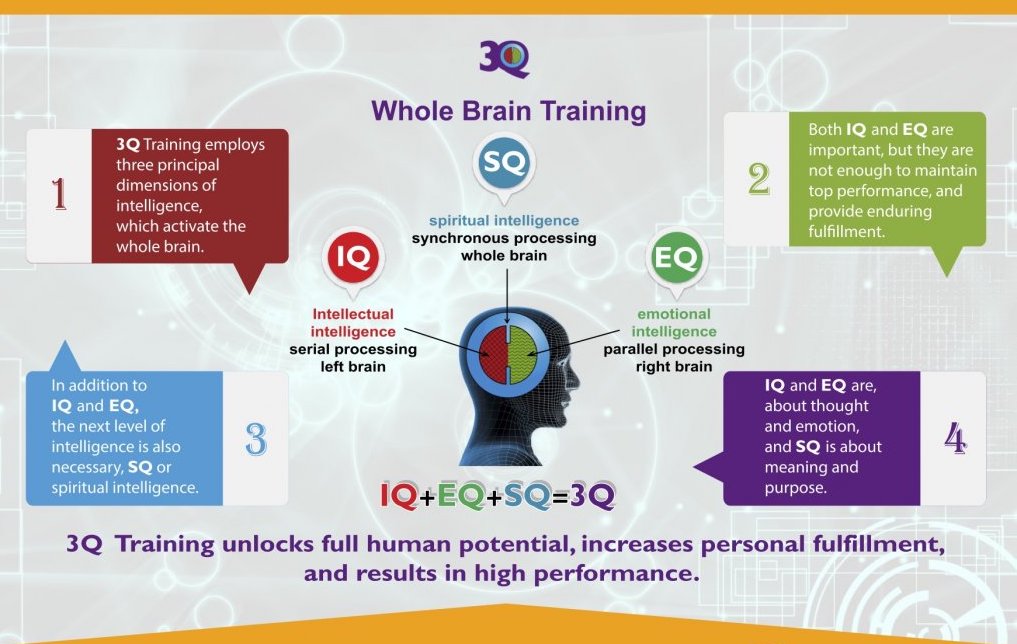
Sources
The SQ paradigm is based on a synthesis combining the wisdom of ancient spiritual traditions with the findings of modern science, as summarised in this article here.
How to Experience Spiritual Intelligence [Video]
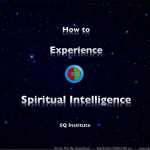 Spiritual intelligence is easy to experience. We all experience SQ spontaneously at times. But spontaneous moments of SQ are rare and unpredictable. Therefore it’s important to know how to experience SQ intentionally. When you can engage your spiritual intelligence voluntarily, at any time of your own choosing, SQ becomes your most powerful personal resource. This video provides step-by-step instructions on how to activate SQ intentionally. Watch the video here.
Spiritual intelligence is easy to experience. We all experience SQ spontaneously at times. But spontaneous moments of SQ are rare and unpredictable. Therefore it’s important to know how to experience SQ intentionally. When you can engage your spiritual intelligence voluntarily, at any time of your own choosing, SQ becomes your most powerful personal resource. This video provides step-by-step instructions on how to activate SQ intentionally. Watch the video here.
References

3Q Practitioner Training Course
Do you want to accelerate your own personal and spiritual growth, and teach others to do the same? The 3Q Practitioner Training Course trains and certifies Spiritual Intelligence Practitioners.
Spiritual Intelligence is a higher dimension of intelligence beyond the ego that has access to the advanced capabilities of the true self. This Course is based on secular spirituality not on religious beliefs. Consequently, the methodology used to activate spiritual intelligence is not founded on articles of faith but on experience and knowledge, backed by evidence from related fields of scientific research. Certified Practitioners are provided with the training materials to coach their clients in spiritual intelligence, and conduct workshops in spiritual intelligence for leaders and organisations, and for the general public.
As the intelligence of the true self beyond the ego, spiritual intelligence (SQ) has many benefits that exceed the scope of intellectual intelligence (IQ) and emotional intelligence (EQ). Spiritual intelligence relieves anxiety and depression and the extreme pain of meaninglessness and despair that is often associated with ego states of awareness. Freedom from ego, as experienced with SQ, grants wisdom and clarity of vision, combined with more empathy and compassion, which increases creativity and intuition, and results in greater personal fulfilment and better performance on important life skills and work skills. Spiritual intelligence therefore represents the most powerful resource for personal and professional growth and fulfilment.
Widespread adoption of spiritual intelligence as a personal code of conduct raises the standard of accountability in collective governance, in response to public demand. When standards in governments and corporations are based on spiritual intelligence, the energy of love will turn into a social and political force, as never before in history. Public training in spiritual intelligence therefore heralds a new era of human rights and social justice, which form the foundation for global cooperative community, shared prosperity, and world peace.
As a 3Q Practitioner you will be equipped to introduce spiritual intelligence in the context of contemporary secular culture, and contribute to the next stage in the evolution of collective consciousness. When a tipping point is reached, the emerging next stage of collective consciousness will result in global transformation, founded not on beliefs of any sort, or on government control, or on mass media narratives enforced by censorship of contrary views, but founded instead on the inherent qualities of consciousness itself, such as love, wisdom, and peace, which everyone can experience by activating their spiritual intelligence.
For more information about the 3Q Practitioner Training Course, click here.
© 2011 – 2025, Richard Griffiths.
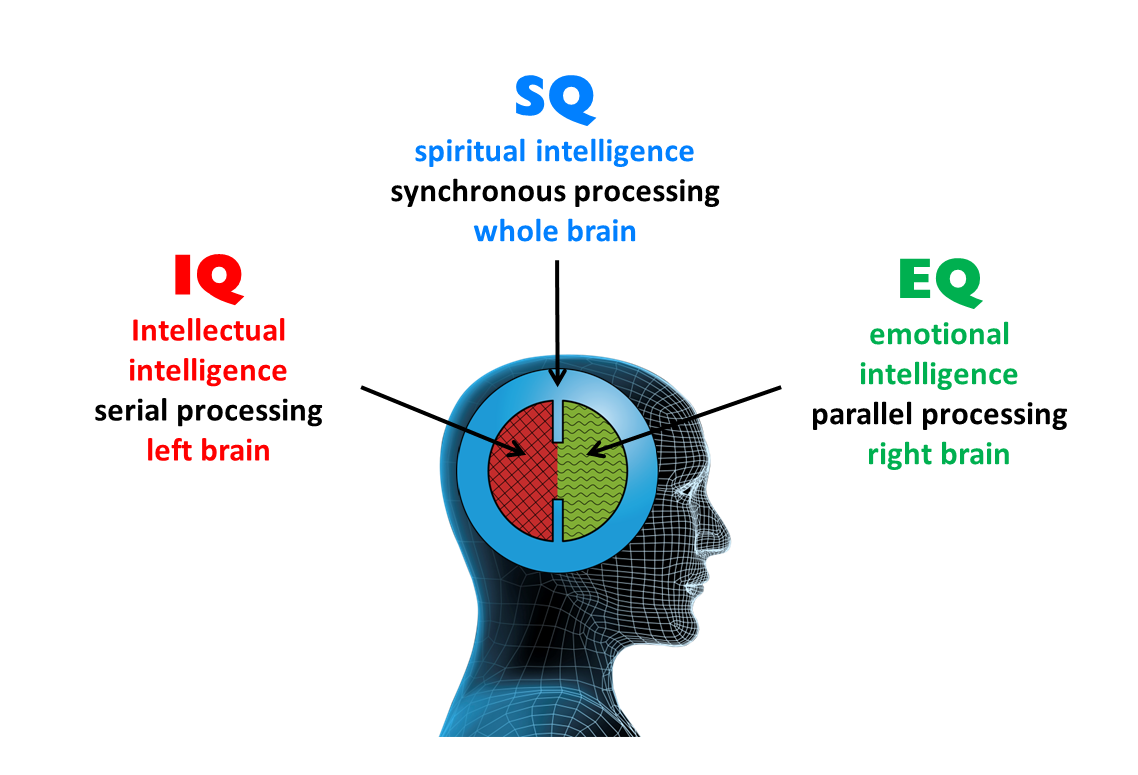
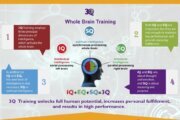
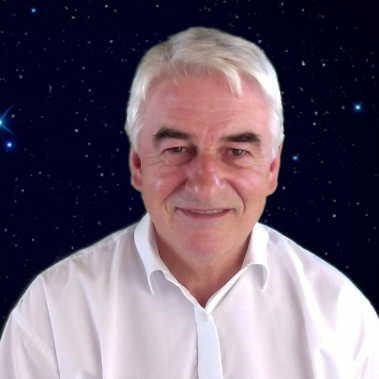
Comments on this entry are closed.
Thanks for the info! After much searching, this was the best article I could find. I appreciate you sharing your research. Thanks!
This is an amazing article. Thank you very much for the outstanding post provided! I was looking for this information for a long time, but I wasn’t able to find a trustworthy source.
Cogito ergo sum ~ Rene Descartes
I will say only one thing. Very good article. I have not read anything written with such a light touch without being frivolous on such an important topic. Everything covered in detail and well.
Came right here to be educated and amused, and I got just that, my only gripe is, I want more. Please keep on publishing. I ask of you. I’m one of you more passionate fans. P.S. please don’t quit now ok
Never seen a website like this, really impressive. Compared to other websites on this sort of subject this is definitely the best site. Will add to favorites.
Absolutely brilliant overview about the subject of spirituality, been following you.
Outstanding information it is without doubt. I have been needing this info, but I only realised that when I read it.